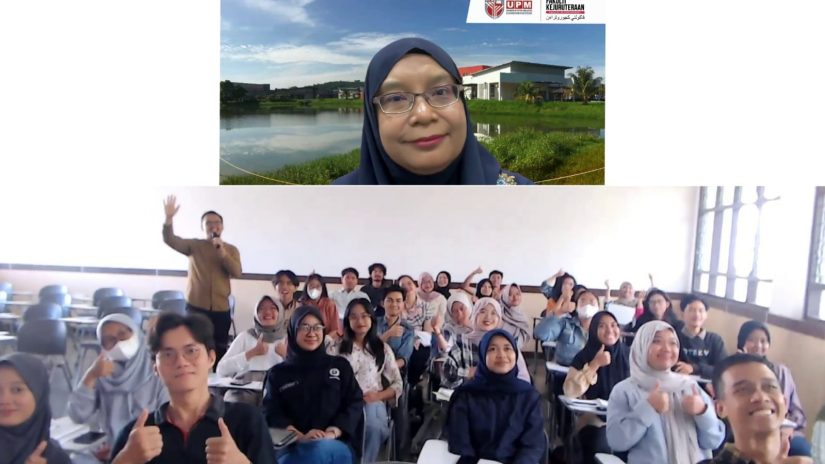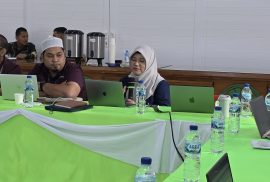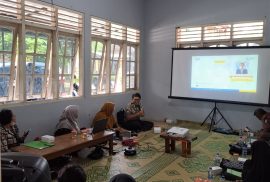
Yogyakarta, September 23, 2025 — The Department of Agricultural and Biosystems Engineering (DTPB), Faculty of Agricultural Technology, Universitas Gadjah Mada (UGM), organized an online Guest Lecture featuring Prof. Rosnah Shamsudin from the Department of Process and Food Engineering, Faculty of Engineering, Universiti Putra Malaysia. The event was opened by Dr. Arifin Dwi Saputro and was part of the Food Materials Knowledge course.
On this occasion, Prof. Rosnah delivered a lecture titled “Formulation & Quality Evaluation of Cookies Enriched with Durian Seed Flour.” She explained that durian seeds, often considered waste and rarely utilized in food processing, can actually be processed into flour with promising nutritional value.
As an example of its application, Prof. Rosnah demonstrated the formulation of cookies in which part of the ingredients were replaced with durian seed flour. Her research findings revealed that this flour offers several advantages compared to all-purpose wheat flour, including being higher in dietary fiber, lower in carbohydrates, and free from the distinct durian aroma, making it suitable for food applications without affecting taste or smell.

The Q&A session was highly interactive, with students raising questions about the potential applications of durian seed flour in other food products, its market prospects, and consumer responses to foods made with this alternative ingredient.
Through this guest lecture, DTPB FTP UGM brought an international academic atmosphere into the classroom, providing students with valuable insights into sustainable food technology innovations. This activity also aligns with SDG 2 (Zero Hunger) through the development of alternative food sources, SDG 4 (Quality Education) by enhancing learning quality through international guest lectures, SDG 12 (Responsible Consumption and Production) by promoting food waste utilization, and SDG 13 (Climate Action) through contributions to reducing organic waste.
It is expected that this lecture will further encourage students to develop innovative research based on the utilization of local resources while also expanding international academic networks to support food security and environmental sustainability.




